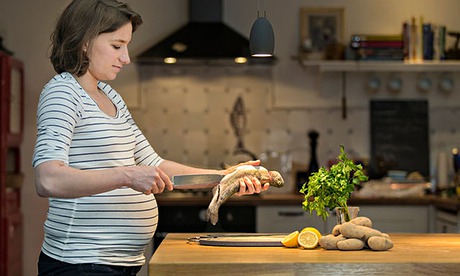
This morning, women stood precariously on the last solid ground in the landscape of UK reproductive rights, looking ahead at an uncertain and treacherous footing. The court of appeal rejected the claim for criminal compensation in the case of CP vs Criminal Injuries Compensation Authority. Thankfully, following this judgment, we still have solid ground under our feet.
Had the unnamed local authority’s solicitors successfully persuaded the court that excessive drinking in pregnancy was a violent crime against a foetus (now a seven-year-old child with foetal alcohol spectrum disorder), it would have marked a dramatic departure from the way the UK legal system has previously defended the autonomy of pregnant women.
Thankfully common sense and accurate interpretation of the law prevailed. Lord Justice Dyson advocated that the role of the state in these cases should be to compassionately provide care and support for children with these additional needs, but not at the expense of criminalising their mothers.
Coming the day after the National Institute for Clinical Excellence (Nice) updated its intrapartum guidelines, which included extensive recommendations on treating women as individuals, with the full spectrum of rights, choices and dignity that this affords them, there is much to feel hopeful about.
For too long women have been shaken to the bottom of the pile in maternity care. In many ways the Nice guidelines are reacting to the realisation that we may have gone too far in the pursuit of safety and forgotten the key protagonist. Physical safety is of course of primary importance in all women’s health and reproductive settings. Yet in narrowing our focus to only physical safety (where often the baby is privileged over the woman even when risks are low), is dangerous for us all.
Safety is much broader than simple physical health, and pregnant women perceive safety and risk in different ways. Yes, they want to have a healthy baby, but they also need to feel physically, emotionally and culturally safe during one of the most significant times in their lives. Both are possible, but ignore women’s needs or make them feel financially, bodily, emotionally, culturally or legally unsafe, and the impact can be profound.
As the Birthplace in England study (which formed part of the evidence-base for the Nice guideline) demonstrates, it can lead to 35% of healthy women having serious physical interventions without benefit to themselves or their babies.
Moreover, the 2008 confidential enquiry in to maternal deaths found that suicide was the leading cause of new mothers dying. This figure has subsequently dropped, but as tragedies in the news this week demonstrate, women are incredibly vulnerable at this transitional time in their lives. No one is well served by making them feel invisible.
So while there is much to be hopeful about, we must also remain vigilant. Giving birth in the UK is now very physically safe overall, so pressure must be put on commissioners to ensure our services are designed around a broader concept of safety, just as Nice directs. We cannot allow phrases like “woman-centred” to continue to be buzzwords that lull those accessing services into a false sense of security only to find that the rhetoric frequently obscures a lack of choice, a failure to ask women to consent, or a coercion of them to do so.
The overwhelming majority of women are capable of making appropriate decisions for themselves and their babies – whether it is about becoming pregnant, ending a pregnancy, how to behave in pregnancy or how to give birth. We must create a culture and service that enables and trusts them to do so. For those who cannot, support, specialist help and investment in health and social care is the answer, not punitive measures.
Work must start on building on the CP case by actively putting women’s voices back in to maternity care and the broader reproductive framework it sits in. Women giving birth, making choices in pregnancy, deciding about abortion or accessing contraception are simply opening different doors along the same path. We must clear that path of obstacles by pulling together; as Birthrights and the British Pregnancy Advisory Service have done around this case.
The collective voices of the mother, the childless, the pregnant woman (like the heavily pregnant woman who confronted anti-abortion protesters harassing women outside an abortion clinic), and the pro-choice campaigner are vital across the entire reproductive justice debate. Together we can beat back incursions to our freedoms and insist that services support genuine choice, so that we remain on solid ground.

